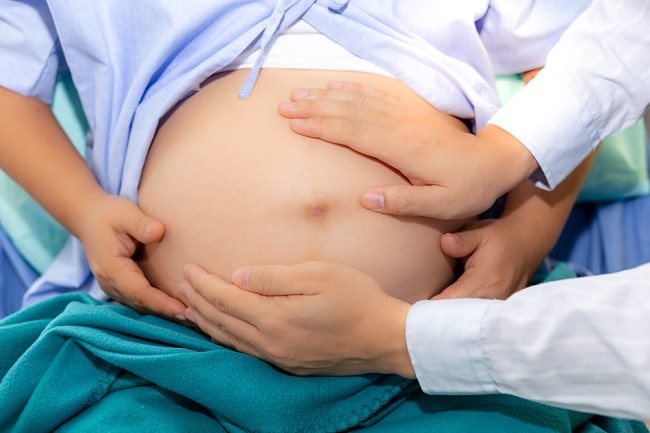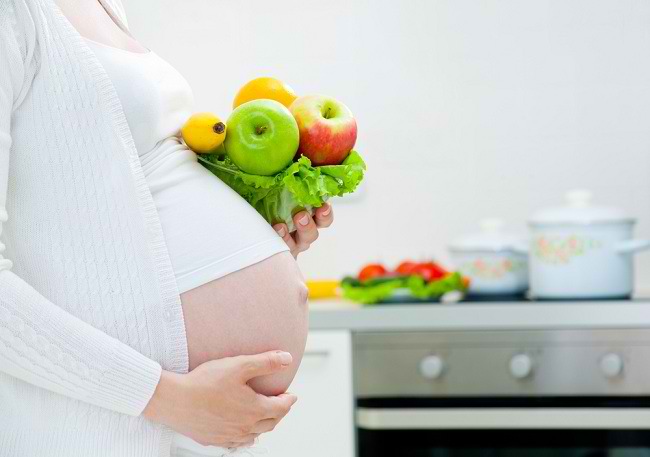Not a few pregnant women who are reluctant to eat carbohydrates because these nutrients are considered to make the body fat. In fact, as long as it is consumed as needed, these nutrients, which are important for maintaining the health of pregnant women and fetuses, do not cause weight gain.
During pregnancy, the mother's body needs complete nutrition to get energy and support the growth and development of the fetus in the womb. Nutrition also plays a major role in maintaining the health condition of pregnant women.

One of the nutrients that need to be fulfilled is carbohydrates. Although important for the body, pregnant women should still pay attention to the portion of carbohydrates consumed.
Benefits of Carbohydrates for Pregnant Women
The following are some of the benefits of carbohydrates for pregnant women that you need to know:
1. As a source of energy
Physical and emotional changes during pregnancy sometimes make pregnant women more easily feel tired, especially in the first trimester. nowSo that the body does not get tired easily and pregnant women can still carry out their daily activities as usual, pregnant women can eat carbohydrate foods to increase stamina.
2. Prevent and treat constipation
Constipation during pregnancy is a common thing. To overcome this complaint, pregnant women can fulfill their intake of complex carbohydrates, namely carbohydrates from vegetables, fruit, nuts, and seeds.
These complex carbohydrates contain fiber that can speed up the work of the digestive system and make stools softer.
3. Support the growth and development of the fetus in the womb
During pregnancy, pregnant women can do various ways to keep their baby born healthy later, one of which is by paying attention to nutritional intake during pregnancy, including carbohydrates.
Carbohydrates are known to play an important role in increasing fetal weight and supporting growth and development in the womb.
4. Reducing the risk of birth defects
A study shows that pregnant women who eat carbohydrate diets have a 30% higher risk of giving birth to babies with neurological disorders, such as spina bifida and anencephaly. This condition can make the sufferer disabled for life or even die.
Therefore, pregnant women are not advised to go on a diet to lose weight without a doctor's recommendation.
Carbohydrate Needs for Pregnant Women
Carbohydrates do have an important role during pregnancy. But keep in mind, excess carbohydrates are not good because it can increase the risk of developing gestational diabetes.
Referring to the recommendations of the Ministry of Health of the Republic of Indonesia, pregnant women are advised to get a carbohydrate intake of 300-350 grams per day.
To meet this intake, pregnant women are advised to consume the following types of foods that are sources of carbohydrates:
- Brown rice.
- Whole grain or whole grain bread.
- Vegetables, such as potatoes, corn, carrots, broccoli, spinach, and mustard greens.
- Fruits, such as apples, mangoes, and oranges.
- Legumes, such as soybeans or kidney beans.
In addition to carbohydrate intake, pregnant women also need to meet other nutritional needs that are important during pregnancy, including:
- Proteins.
- Healthy fats, such as omega-3 fatty acids.
- Minerals, including calcium, iron, and folate.
- Vitamins, such as vitamin D, vitamin A, vitamin B complex, and vitamin C.
These various nutrients can be obtained by eating a variety of foods that contain balanced nutrition.
Apart from having a healthy diet, to maintain a healthy pregnancy pregnant women also need to complete it with regular exercise, not smoking or inhaling secondhand smoke, not consuming alcoholic beverages, reducing caffeine intake, reducing stress, and getting adequate rest.
In addition, pregnant women also need to regularly consult with obstetricians to undergo prenatal care according to a schedule so that the health condition of pregnant women and the fetus in the womb is monitored properly.









